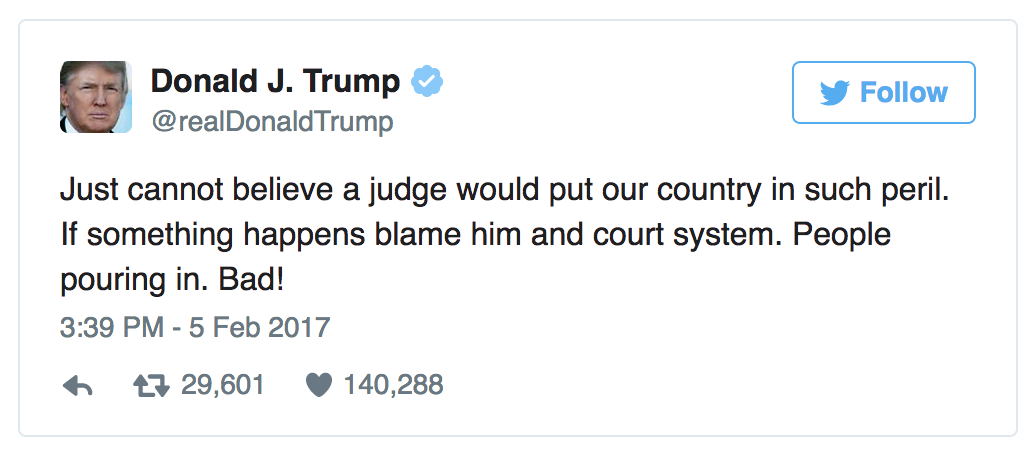Support democracy — use your own words
Want to support democracy? Use your own words, not the language the government feeds you.
Once again, the current Republican president of the United States and his minions have put words in the spotlight. Which is ironic if you consider the speculation that the man may be close to illiterate himself. Samantha Bee floated this idea last fall, comparing it to the baseless rumor about President Obama’s citizenship. It’s satire, right?
Still, his people’s talk of “alternate facts” has driven up sales of George Orwell’s novel 1984, as well as other works about totalitarianism, fictional and not. Great news for the publishing industry. Not so great news for us. We’re not just reading about a dystopian state; we’re moving toward living in one.
Support democracy by using correct words
So allow me to introduce you to Timothy Snyder, the writer of
A Yale history professor’s powerful, 20-point guide to defending democracy under a Trump presidency
It’s worth reading all 20 points—that’s why I gave you the handy link—but I want to highlight a few that fall into my bailiwick: Words and how we use them.
6. Be kind to our language.
Avoid pronouncing the phrases everyone else does. Think up your own way of speaking, even if only to convey that thing you think everyone is saying. (Don’t use the internet before bed. Charge your gadgets away from your bedroom, and read.) What to read? Perhaps The Power of the Powerless by Václav Havel, 1984 by George Orwell, The Captive Mind by Czesław Milosz, The Rebel by Albert Camus, The Origins of Totalitarianism by Hannah Arendt, or Nothing is True and Everything is Possible by Peter Pomerantsev.
The Arendt book has joined Orwell on the best-seller lists. I ended my Inauguration Day blog post with a quotation from her work on totalitarianism.
The media have had an abysmal record of picking up and parroting the language of despots. If a dictator calls his genocide “ethnic cleansing,” for example, then anyone using the proper word—genocide—risks losing their gold star for Impartiality. Equating killing with cleaning—honestly, I can’t even type the phrase without throwing up a little. Yet journalists did it unthinkingly for decades. (I wrote about that too, in a post I called “Name Those Euphemisms!”)
We’re starting to catch on, though. It took the media only a few months to go from “alt-right” to “white nationalist,” to switch (for the most part) from “fake news” to “propaganda.” And “alternative facts” was pretty much dead on arrival. At least we still understand the definition of “fact.” Let’s hang on to that. Please.
4. When listening to politicians, distinguish certain words.
Look out for the expansive use of “terrorism” and “extremism.” Be alive to the fatal notions of “exception” and “emergency.” Be angry about the treacherous use of patriotic vocabulary.
I have to admit, I fell for this one after 9/11.
I had a major case of “there-but-for-the-grace-of-God-go-I”-tis when the building I used to work in pancaked that afternoon. As we mourned more than 2,000 dead, it didn’t seem unreasonable to give the government a little leeway to make sure we didn’t lose another 2,000—or more. I mean, we still had the Constitution. No American government would really infringe on the civil liberties of its citizens, right?
Wrong.
Fool me once, to paraphrase the saying—shame on you. Fool me twice—nope. Not gonna give you the opportunity.
 When the Republican currently in the Oval Office finds his plans thwarted, he tweets dire warnings about who to blame “if something happens.”
When the Republican currently in the Oval Office finds his plans thwarted, he tweets dire warnings about who to blame “if something happens.”
Why such certainty that something bad will happen? I can’t say. But just as the Tweeter-in-Chief expects a terrorist attack, I expect an attack on our civil liberties.
In the current environment, I don’t believe a preemptive attack will succeed. (See the thousands who protested the “Muslim ban” at airports around the country. Even in the heartland.) But after an attack, it will be harder for people to resist the government’s talk about “exception” and “emergency.”
That’s why we need to talk about this now. As loudly and as often as possible. Support democracy with your words—and with your actions (you’ll find more on that in Professor Snyder’s other 18 points).
Finally,
8. Believe in truth.
To abandon facts is to abandon freedom. If nothing is true, then no one can criticize power, because there is no basis upon which to do so.
It’s never been more important to speak truth to power. And
19. Be as courageous as you can.